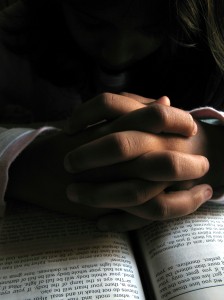 EUREKA, Calif. — A judge in Humboldt County, California has issued a ruling declaring that invocations at city council meetings do not violate the state Constitution.
EUREKA, Calif. — A judge in Humboldt County, California has issued a ruling declaring that invocations at city council meetings do not violate the state Constitution.
County Superior Court Judge Bruce Watson struck down a challenge filed by Eureka resident Carole Beaton, who sought to have all prayers at local city council meetings discontinued. Beaton also desired to have the courts order Eureka Mayor Frank Jager to stop promoting the city’s annual prayer breakfast.
Last Tuesday, Watson ruled that general invocations presented during council meetings are lawful, but said that Beaton could refile her lawsuit to challenge specific sectarian prayers that have been presented.
Watson noted the historical nature of prayer in California.
“Since 1849 the state Constitution has begun with a religious invocation: ‘We, the People of the State of California, grateful to Almighty God for our freedom, in order to secure and perpetuate its blessings, do establish this Constitution,'” he stated. “This language, as well as the history of how it came to be included, eloquently refutes the argument that the framers of the state Constitution intended to prohibit ceremonial prayer.”
Watson also pointed to the 1983 Supreme Court ruling in Marsh v. Chambers, which found lawful the practice of beginning legislative meetings with chaplain-led prayers.
Following the decision, Mayor Jager released a statement defending Eureka’s prayer tradition.
“Invocations have a place in history in this country and I do not believe that the City of Eureka should be treated any differently than the United States Congress or the California State Legislature,” he wrote in a statement. “The City welcomes everyone and does not force anyone that does not want to participate in the invocation to join in.”
Watson has yet to rule on the challenge to Jager’s prayer breakfasts, but Jager has quipped about the lawsuit, filed by local attorney Peter Martin.
“Peter Martin, he’s a good buddy of mine. We’ll invite him to the prayer breakfast. And if he doesn’t come, we’ll pray for him,” he told the North Coast Journal earlier this year.
In the meantime, the U.S. Supreme Court is expected to hear argument in March surrounding a legal challenge that centers on the invocations that are offered at town hall meetings in Greece, New York, just outside of Rochester. As previously reported, Town of Greece v. Galloway stems back to 2010, when local residents Susan Galloway and Linda Stephens sued the town, asserting that its preponderance of Christian prayers violate the Constitution.
“[I]t’s a form of coercion,” Stephens told the Rochester Democrat and Chronicle. “Some of these pastors tell you to stand up and bow your heads to pray to Jesus, and what if you don’t believe that? And if you refuse to stand up and bow your head, you stick out. It’s a coercive situation.”
But an amicus brief supported by 23 state attorneys general contended that that prayers do not have be pre-screened for “sectarian references.”
“The Court should reject the assumption that the content of private citizens’ prayers before legislative assemblies is attributable exclusively to the government. Such prayers, rather are expressions of private belief made in service to an elected body of citizens,” it reads. “Those present may participate or not, but each citizen’s mode of rendering this particular service to a governmental body may rightfully be accommodated.”
Become a Christian News Network Supporter...


